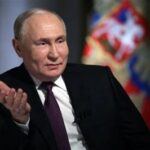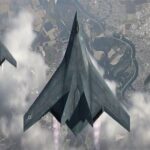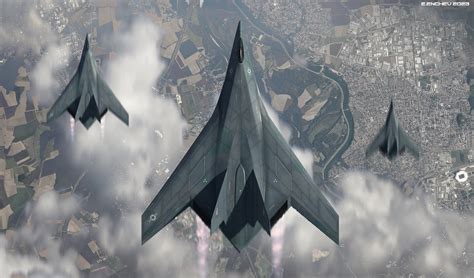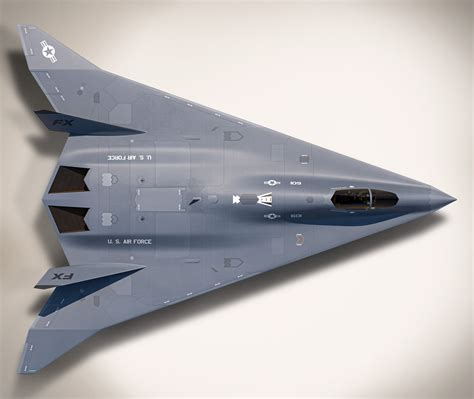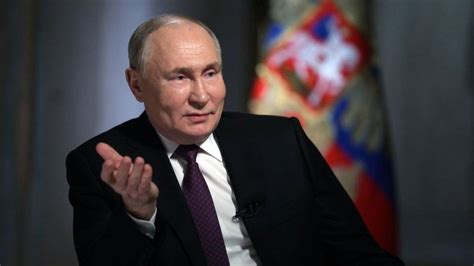
Russia plans to reduce its military spending as a percentage of GDP starting in 2025, President Vladimir Putin announced, despite the ongoing conflict in Ukraine. He emphasized that the country needs to balance military expenditure with investments in other critical areas of the Russian economy.
Speaking at a meeting with graduating officers at military universities, Putin stated, “Next year, we need to gradually move towards solving the tasks of developing the armed forces and increasing defense capability with a greater focus on quality, with an increase in the effectiveness of military spending.” He added, “Now the share of these expenditures in relation to GDP is significant. We will have to move towards its normalization later.”
The announcement comes amidst Russia’s continued military operations in Ukraine, which have placed a significant strain on the Russian economy. While Putin did not specify the exact percentage decrease planned for the military budget, his statement suggests a shift in priorities as Russia navigates the economic consequences of the war and Western sanctions.
Putin’s remarks indicate a recognition that sustained high levels of military spending are not sustainable in the long term. “Of course, we will provide everything necessary to strengthen our defense capability, but we must not forget that we also have other tasks,” he stated, highlighting the need to invest in healthcare, education, infrastructure, and technological development.
The decision to scale back military spending reflects a complex interplay of factors, including the economic realities of the war, the need to modernize the Russian military, and the desire to maintain social and economic stability. This adjustment could signal a recalibration of Russia’s strategic priorities in the face of prolonged conflict and economic pressure.
Economic Context
Russia’s economy has faced significant challenges since the start of the conflict in Ukraine in February 2022. Western sanctions, including restrictions on access to technology and financial markets, have impacted various sectors of the Russian economy. Despite initial resilience due to high energy prices, the long-term effects of sanctions and the costs of the war are becoming increasingly apparent.
The Russian government has implemented various measures to mitigate the impact of sanctions, including import substitution programs, increased trade with non-Western countries, and fiscal stimulus. However, these measures have not fully offset the negative effects of the conflict.
The decision to scale back military spending suggests that the Russian government is seeking to optimize resource allocation and prioritize investments that will support long-term economic growth and development. This shift could also be aimed at alleviating some of the pressure on the Russian economy and improving the living standards of the population.
Military Modernization
While reducing the overall percentage of GDP allocated to the military, Putin emphasized the importance of increasing the effectiveness of military spending. This suggests a focus on modernizing the Russian armed forces, improving training, and investing in advanced technologies.
“We will continue to develop advanced weapons systems, strengthen strategic nuclear forces, and enhance the combat readiness of all branches of the armed forces,” Putin stated. “But we must also ensure that our military spending is efficient and contributes to the overall development of the country.”
The modernization of the Russian military is a long-term project that has been underway for several years. This includes the development of new weapons systems, such as hypersonic missiles, unmanned aerial vehicles, and advanced electronic warfare capabilities. The focus on quality over quantity in military spending reflects a desire to enhance the capabilities of the Russian armed forces without necessarily increasing the overall size of the military.
Geopolitical Implications
The decision to scale back military spending could have significant geopolitical implications. It could signal a desire to de-escalate tensions with the West and pursue a more pragmatic foreign policy. However, it could also be interpreted as a sign of weakness or a recognition that Russia is unable to sustain its current level of military expenditure in the long term.
The reaction of Western countries to this announcement will be closely watched. Some may see it as a positive sign that Russia is willing to prioritize economic development over military expansion. Others may remain skeptical, arguing that Russia’s actions on the ground in Ukraine will ultimately determine the future of its relations with the West.
The decision to scale back military spending could also affect Russia’s relationships with its allies and partners. Some countries may view it as a sign that Russia is less willing to project its power abroad. Others may see it as an opportunity to strengthen their own defense capabilities and assert their independence from Russia.
Domestic Considerations
The decision to scale back military spending is likely to be met with mixed reactions within Russia. Some may welcome it as a sign that the government is prioritizing the needs of the population. Others may criticize it as a betrayal of national interests or a sign that Russia is weakening its defenses.
The Russian government will need to carefully manage public opinion and ensure that the decision is seen as being in the best interests of the country. This could involve emphasizing the importance of economic development, highlighting the benefits of military modernization, and reassuring the population that Russia’s security will not be compromised.
The decision to scale back military spending could also have implications for the Russian defense industry. Some defense companies may face reduced orders and layoffs. The government may need to provide support to these companies to help them adapt to the changing environment.
Analysis of Putin’s Statement
Putin’s statement is carefully worded and reflects a desire to balance competing priorities. He emphasizes the importance of strengthening Russia’s defense capability while also recognizing the need to invest in other areas of the economy.
The statement suggests that the Russian government is aware of the economic challenges posed by the war in Ukraine and is seeking to mitigate the impact of these challenges. It also suggests that the government is committed to modernizing the Russian military and improving the efficiency of military spending.
The statement is likely intended to reassure both domestic and international audiences. It signals that Russia is not seeking to escalate the conflict in Ukraine and is willing to prioritize economic development over military expansion. However, it also makes clear that Russia will continue to defend its interests and maintain its military strength.
Impact on the Conflict in Ukraine
While the planned reduction in military spending may not have an immediate impact on the conflict in Ukraine, it could signal a shift in Russia’s long-term strategy. A reduction in military spending could limit Russia’s ability to sustain its military operations in Ukraine over the long term. It could also make it more difficult for Russia to achieve its objectives in the conflict.
However, it is important to note that Russia still possesses significant military capabilities and is likely to continue to support its forces in Ukraine. The decision to scale back military spending is unlikely to lead to an immediate withdrawal of Russian forces from Ukraine.
The future of the conflict in Ukraine will depend on a variety of factors, including the level of support provided by Western countries to Ukraine, the effectiveness of Ukrainian forces, and the political will of both sides to negotiate a settlement.
Expert Opinions
Experts have offered varied perspectives on Putin’s announcement. Some suggest that the decision is driven by economic necessity, while others believe it is a strategic move to reallocate resources and focus on modernization.
“The Russian economy is under significant strain due to sanctions and the costs of the war,” said a leading economist at the Institute for International Finance. “A reduction in military spending is necessary to stabilize the economy and prevent a further decline in living standards.”
However, a military analyst at the Center for Strategic and International Studies argued that the decision is more about improving the efficiency of military spending. “Russia has been investing heavily in modernizing its military for years,” he said. “The focus now is on making sure that these investments are paying off and that the military is able to operate effectively with a smaller budget.”
Conclusion
President Putin’s announcement that Russia plans to scale back military spending in 2025 reflects a complex set of economic, military, and geopolitical considerations. The decision is likely driven by a combination of factors, including the economic challenges posed by the war in Ukraine, the need to modernize the Russian military, and the desire to maintain social and economic stability.
While the decision may have significant implications for the conflict in Ukraine and Russia’s relations with the West, it is important to avoid drawing hasty conclusions. The future of Russia’s military spending will depend on a variety of factors, including the evolution of the conflict in Ukraine, the state of the Russian economy, and the political priorities of the Russian government.
The announcement signals a potential shift in Russia’s strategic priorities and could have far-reaching consequences for the region and the world. Monitoring how this decision unfolds will be crucial for understanding Russia’s evolving role in international affairs. The balance between military strength and economic stability will undoubtedly shape Russia’s future trajectory.
Frequently Asked Questions (FAQ)
1. Why is Russia planning to reduce its military spending in 2025?
Russia is planning to reduce its military spending due to a combination of factors, primarily the economic strain caused by the ongoing conflict in Ukraine and Western sanctions. The country aims to balance military expenditures with investments in other critical areas of the economy, such as healthcare, education, and infrastructure. President Putin emphasized the need to increase the effectiveness of military spending while normalizing its share in relation to GDP.
2. How will this reduction in military spending affect the conflict in Ukraine?
While the immediate impact on the conflict in Ukraine may be limited, a long-term reduction in military spending could constrain Russia’s ability to sustain its military operations. It might also impact Russia’s capacity to achieve its objectives in the conflict over an extended period. However, Russia still possesses significant military capabilities, and the reduction is unlikely to lead to an immediate withdrawal of forces.
3. What does Putin mean by “normalization” of military spending?
By “normalization,” Putin refers to reducing the percentage of GDP allocated to military expenditures to a more sustainable level. The current high level of spending is considered temporary and unsustainable in the long term. “Normalizing” the spending implies reallocating resources to other sectors of the economy to promote overall development and improve living standards for the Russian population.
4. Will Russia’s military modernization efforts be affected by the spending reduction?
No, Russia intends to continue modernizing its military despite the planned spending reduction. The focus will shift towards increasing the effectiveness and quality of military expenditures, rather than solely focusing on quantity. This includes developing advanced weapons systems, improving training, and investing in advanced technologies. The goal is to enhance military capabilities with more efficient spending.
5. What are the potential geopolitical implications of Russia’s decision to scale back military spending?
The decision could have several geopolitical implications. It might be interpreted as a sign of Russia’s willingness to de-escalate tensions with the West and prioritize economic development. However, it could also be seen as a sign of weakness or an acknowledgement that Russia cannot sustain its current level of military expenditure. The reaction of Western countries and Russia’s allies will be closely monitored to assess the broader impact on international relations.
Expanded Analysis
The decision by Russia to scale back its military budget in 2025 is a multifaceted development that warrants deeper analysis, taking into account the broader geopolitical landscape and the internal dynamics of the Russian state.
Economic Pressures and Sanctions:
Since the onset of the conflict in Ukraine in February 2022, Russia’s economy has been under immense pressure due to a barrage of international sanctions. These sanctions, imposed by Western countries, have targeted Russia’s financial institutions, technological sectors, and energy exports. Although Russia managed to initially weather the storm thanks to high energy prices, the long-term implications of these sanctions are becoming increasingly evident. The sanctions have limited access to critical technologies and financial markets, thereby impeding Russia’s industrial and technological development.
Furthermore, the costs associated with the war itself have placed a significant burden on the Russian economy. The need to supply troops, maintain military equipment, and compensate for losses has diverted substantial resources away from other sectors. This situation is exacerbated by the fact that a significant portion of Russia’s labor force is either directly involved in the military or supporting the war effort, leading to labor shortages in other crucial industries.
Putin’s announcement reflects a pragmatic recognition that sustained high levels of military spending are simply not sustainable in the long term. It indicates an attempt to recalibrate the Russian economy and to prioritize investments in sectors that can drive long-term growth and improve the living standards of the population.
Strategic Reorientation:
The decision to reduce military spending does not necessarily imply a weakening of Russia’s military capabilities. Instead, it suggests a strategic reorientation towards a more efficient and technologically advanced military force. Russia has been actively investing in military modernization programs for over a decade, focusing on developing advanced weapons systems such as hypersonic missiles, unmanned aerial vehicles, and electronic warfare capabilities.
By scaling back overall military spending while simultaneously prioritizing modernization, Russia aims to achieve a more potent and agile military force without the exorbitant costs associated with maintaining a large conventional army. This approach aligns with contemporary warfare trends, which emphasize technological superiority and precision targeting over brute force.
Moreover, the reallocation of resources could allow Russia to invest in other critical areas of national security, such as cybersecurity and intelligence gathering. These areas have become increasingly important in the modern geopolitical landscape, and Russia has demonstrated a keen interest in developing its capabilities in these domains.
Geopolitical Implications:
The decision to reduce military spending is likely to have significant geopolitical implications, both regionally and globally. On the one hand, it could be interpreted as a sign of Russia’s desire to de-escalate tensions with the West and to seek a negotiated settlement to the conflict in Ukraine. By signaling a willingness to prioritize economic development over military expansion, Russia may hope to improve its relations with Western countries and to alleviate some of the economic pressures imposed by sanctions.
On the other hand, some analysts may view the decision with skepticism, arguing that it is merely a tactical maneuver designed to buy time and to consolidate Russia’s gains in Ukraine. They may point to Russia’s continued military presence in the occupied territories and its ongoing support for separatist movements as evidence that its long-term goals remain unchanged.
Furthermore, the decision could also affect Russia’s relationships with its allies and partners. Some countries that rely on Russia for military assistance and security guarantees may feel less secure if Russia scales back its military spending. This could lead to a realignment of alliances and a shift in the balance of power in certain regions.
Domestic Considerations:
The decision to reduce military spending is also likely to have significant domestic implications within Russia. While some segments of the population may welcome the reallocation of resources towards social programs and economic development, others may view it with concern, fearing that it could weaken Russia’s national security and undermine its position in the world.
The Russian government will need to carefully manage public opinion and to ensure that the decision is perceived as being in the best interests of the country. This could involve emphasizing the importance of economic stability and the need to improve living standards, while also highlighting the ongoing efforts to modernize the military and to protect Russia’s national interests.
Moreover, the decision could also have implications for the Russian defense industry, which has traditionally been a major source of employment and economic activity. A reduction in military spending could lead to job losses and a decline in production, which could create social and economic tensions. The government may need to provide support to defense companies to help them adapt to the changing environment and to diversify their production.
The Information War and Strategic Communication:
In conjunction with any actual changes in budget allocation, the announcement itself serves as a crucial component of Russia’s broader strategic communication efforts. By publicly stating the intent to reduce military spending, Putin is actively shaping the narrative surrounding the conflict in Ukraine and Russia’s long-term strategic goals.
This narrative aims to achieve several objectives:
-
Soften International Perceptions: The announcement can be viewed as an attempt to project an image of Russia as a responsible global actor that is willing to prioritize economic development and peaceful relations with other countries. This image contrasts sharply with the Western narrative of Russia as an aggressive and expansionist power.
-
Undermine Western Unity: By signaling a potential willingness to de-escalate tensions, Russia may hope to sow discord among Western countries and to weaken the coalition that has imposed sanctions. Some countries may be more inclined to seek dialogue and to ease sanctions if they perceive Russia as being more cooperative.
-
Bolster Domestic Support: The announcement can also be seen as an attempt to reassure the Russian population that the government is prioritizing their needs and that the sacrifices associated with the war will not be in vain. By emphasizing the importance of economic stability and improved living standards, the government may hope to maintain public support for its policies.
Implications for Arms Control and Disarmament:
The decision to reduce military spending could also have implications for international arms control and disarmament efforts. Russia has historically been a key player in arms control negotiations, and its willingness to reduce its military budget could create new opportunities for dialogue and cooperation.
However, any progress in this area will depend on a number of factors, including the overall state of relations between Russia and the West, the willingness of other countries to reduce their military spending, and the development of new weapons technologies that could undermine existing arms control agreements.
The Human Factor and Morale:
The decision to scale back military spending can also affect the morale and readiness of the Russian armed forces. Military personnel and defense industry workers may feel uncertain about their future and may question the government’s commitment to national security.
To mitigate these effects, the Russian government needs to communicate clearly and effectively with the armed forces and the defense industry, emphasizing the importance of modernization and the need to adapt to the changing security environment. The government also needs to provide adequate support to military personnel and defense industry workers who may be affected by the changes.
Long-Term Trajectory and Unpredictability:
Predicting the long-term trajectory of Russia’s military spending and its geopolitical implications is a complex and challenging task. The situation is highly fluid and subject to a number of unpredictable factors, including the evolution of the conflict in Ukraine, the state of the global economy, and the internal dynamics of the Russian political system.
However, it is clear that the decision to scale back military spending represents a significant shift in Russia’s strategic priorities. It signals a recognition that the country needs to adapt to the changing geopolitical landscape and to prioritize economic development and technological innovation.
The success of this reorientation will depend on a number of factors, including the ability of the Russian government to implement effective economic policies, to manage public opinion, and to maintain a strong and credible military force. It will also depend on the willingness of other countries to engage with Russia in a constructive and cooperative manner. Only time will tell how this decision will ultimately shape Russia’s role in the world.
In conclusion, Russia’s decision to scale back its military spending starting in 2025 is a complex issue with multifaceted implications. It reflects the economic challenges imposed by the conflict in Ukraine, a strategic reorientation towards a more efficient and technologically advanced military, and a need to address domestic considerations. While the geopolitical implications remain uncertain, this decision signals a potential shift in Russia’s strategic priorities and its relationship with the global community. The long-term trajectory will depend on how Russia manages its economic policies, public opinion, and relations with other nations.
